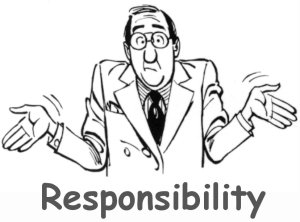
Sustainability and Advancement – Nature Is Calling for Love: Part 2
To establish a sustainable society and begin a less painful advance toward our objective we must understand and observe certain social principles that work much like a large family: each member receives their needs from society, each member provides for the well-being of that society through their work. As good parents we all want our children and grandchildren to have a better life than we did. That desire represents the essence of a sustainable society. According to Fritjof Capra, PhD (physics), “a sustainable society is one that is able to fulfill its needs without diminishing the chances for future generations”. For the perfect example of a sustainable society we need only to look at nature, whose ecosystems represent sustainable communities of plants, animals, and microorganisms. The Center for Ecoliteracy has identified six of Mr. Capra’s principles for a sustainable community as core ecological concepts, which are: Networks – All living things in an ecosystem are interconnected through networks of relationship. They depend on this web of life to survive. For example, in a garden, a network of pollinators promotes genetic diversity; plants, in turn, provide nectar and pollen to the pollinators. Nested systems – Nature is made up of systems that are nested within systems. Each individual system is an integrated whole and, at the same time, part of larger systems. Changes within one can affect the sustainability of the others that are nested within it, as well as the larger systems in which it exists. For example, cells are nested within organs within organisms within ecosystems. Cycles – Members of an ecological community depend on the exchange of...
Nature Is Calling For Love
Millennia from now, will we be just another figure on the evolutionary chart? Looking back, will our future generations know that at this point in time humanity became aware of its integral relationship with nature and each other? Right now, it appears the answer is ‘no’. If we continue on our present trajectory, there will be a mushroom cloud marking our place in the biological process. We have insulated ourselves from nature so well in this age; our predicament comes from a conviction that we are beyond the laws of nature and its rules do not apply to us. Patrick Henry, one of America’s founding fathers confirms, “It is natural for man to indulge in the illusions of hope. We are apt to shut our eyes against a painful truth and listen to the song of that siren till she transforms us into beasts… For my part, whatever anguish of spirit it may cost, I am willing to know the whole truth, to know the worst, and to provide for it”. Apparently, mankind has been utilizing the ostrich approach for a very long time… Instead of inventing our own rules as we go along, we should study the laws of nature and learn to work within them. Knowing the rules was essential when our ancestors shared living area and hunting grounds with saber-toothed tigers and mammoths. The difference between surviving and becoming a quick snack depended upon their knowledge of the system and the ability to work within it. Failure meant a swift and merciless end. Even up until the 20th century, our forefathers wouldn’t have imagined themselves living outside this...
How to Live in a New World
First, it is impossible to manage in the new world when each one thinks only about oneself. We have to think about everyone. There is no other choice. This is nature’s law that is being revealed in our times. Second, every member of society should be concerned about others like organs in one body. In the global world, we need not build egoistic systems for media, governments, social systems, health care, education, etc., which today do not care about what happens to others. What we need to be concerned with is how to build a healthy person in a healthy society. All the systems should be focused on this purpose. This means that there must be one general plan. The leaders of society must understand that we need to integrate and embrace mutual responsibility, and use our voices and votes to insist on this. Otherwise, each will continue with his protectionism, which will lead to opposition to and destruction of nature. We should aspire for this same mutually beneficial relationship to exist in the family, children’s education, neighborhoods, cities, nations, and the whole world. This means that we don’t have to develop separate, specific systems for education, culture, and health, but rather we need to work in circles, moving from small circles to wider ones, and eventually encompassing all of humanity. We have to restructure all international organizations differently, so that this will be their goal and how they aim all their activity at. All the laws in the world should reflect its integrated nature, so that integrality becomes the essential law of our existence. The leadership, courts, and systems for human rights should be...
